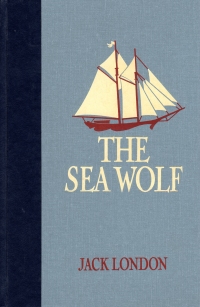 In mid-December, the head pastor of the church stopped by to tell my mother-in-law, a former English teacher, that although he had not been working on the reading list he’d provided her, he had read something along those lines. Sadly, I have already forgotten what he said he’d read, but my mother-in-law had provided him with a list of nautical-themed things to read because he’s a sailor. So I made some remark about that she should have picked him a book where the boat didn’t sink, but there are so few of them.
In mid-December, the head pastor of the church stopped by to tell my mother-in-law, a former English teacher, that although he had not been working on the reading list he’d provided her, he had read something along those lines. Sadly, I have already forgotten what he said he’d read, but my mother-in-law had provided him with a list of nautical-themed things to read because he’s a sailor. So I made some remark about that she should have picked him a book where the boat didn’t sink, but there are so few of them.
I mentioned this title, but (spoiler alert) there’s a boat that sinks in chapter one. So it’s a bad suggestion for the list.
At first I thought of the book as a mash-up of Captains Courageous and The Secret Sharer. A dilettante writer/academic is in a ferry wreck in the San Francisco Bay, and he’s rescued by an outgoing seal hunting ship. As the captain brutally punishes a mate that leads to that mate’s death, the captain shanghais the rescued fellow to fill out the crew. He starts as a kitchen assistant and deals with the brutality of life at sea and hardens. As he gets to know the captain better, he is surprised to learn the captain is well-read and self-taught. Together, they have many discussions, mostly about the nature of man, whether he’s a brute or not.
The captain, of course, takes the brute side and during the course of the voyage handles the crew with cruelty. After a famous woman writer is rescued from another shipwreck, the narrator decides he has had enough and takes off with the dame in one of the sealing boats. After an ordeal on the open sea for a couple of days, they find an island with a seal rookery on it and start to build a hut. So it veers into Robinson Crusoe briefly but the captain, alone, ends up beached with the disabled ship which gives them an opportunity to escape if the narrator can repair and sail a schooner by himself. And he does, but only after the cruel captain dies of some sort of brain damage or tumor.
It’s an interesting book of the era, when the first person narrator is flawed; we know he’s flawed, but the key is to determine where he is flawed and how much of the story is not true. He has nothing but admiration for the body of the captain, strong as a beast is strong and designed for its purpose of being tough and cruel. Undoubtedly, that has sparked many, many insights in undergrad papers of potential homoeroticism. Since I’m above undergrad readings of the book, I’d rather explore the relationship of the narrator with the woman: does she like like him, does she see him as the best possible way to get back to civilization? Does she prefer the brutal but more straightforwardly masculine captain? At the end of the adventure (which ends when they sight another ship after getting the schooner back to sea), do they remain together?
It’s a pretty good book. It’s a mishmash and it’s not clear where the story is going to go from the outset, but it mixes details of sailing with some earnest philosophy–argued more than it is when morals get dumped into men’s paperbacks.
On a side note, I was pleased to learn I’d not read this book before. As you know, gentle reader, I sometimes buy a different copy of a book that I’ve read previously only to discover as I read it or as I prepare the book report that I’ve read it before. Well, in high school, I read a volume of Jack London that contained The Call of the Wild and some other work, including a sailing adventure. I found the volume I read (yes, thirty years ago) and was happy to see I’d read Cruise of the Dazzler. I mean, clearly I don’t remember much from the novel (unlike The Call of the Wild where I even remember that I learned two words, wont and ecstasy, from the book).
So I’ll have to keep my eyes open for more Jack London volumes at the local book sales. Because I’m down to my last several thousand things to read.


